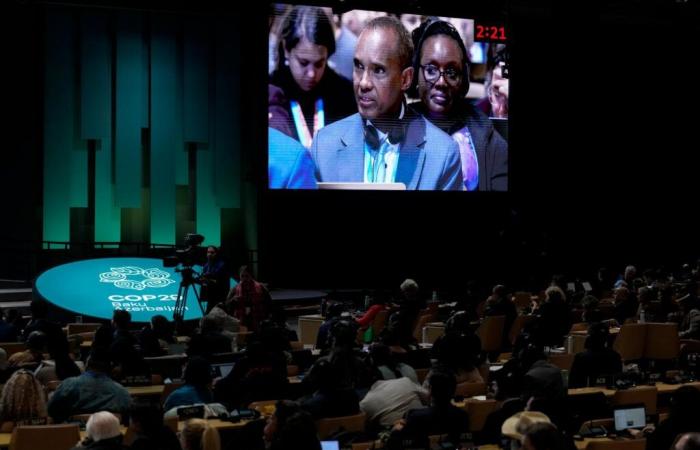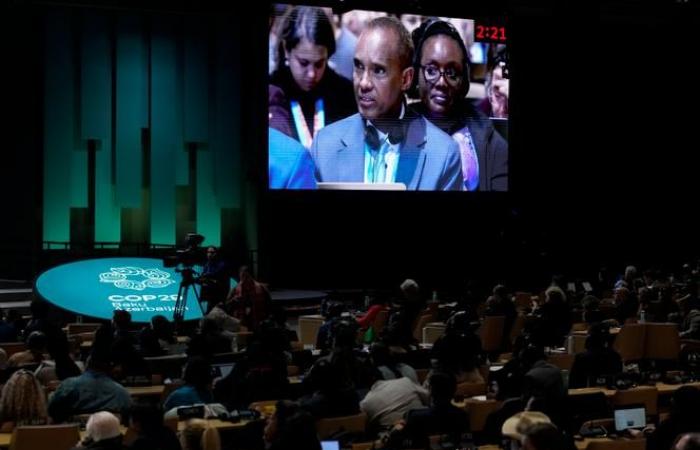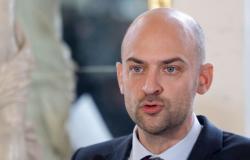The world climate conference in Baku ended with anger and disappointment for Africa. While the negotiations continued late into the night from Saturday to Sunday, it was with the feeling of having their arm twisted that the African delegates still present in the Azerbaijani capital accepted an agreement which in no way responds to their main expectations. The funding promised for 2035 is “too weak, too late and too ambiguous. Africa leaves Baku with realism and resignation because COP29 ends well below our expectations. When Africa loses, the world loses”lamented Ali Mohamed, the special envoy of Kenyan President William Ruto and spokesperson for the Africa group.
Read also | Article reserved for our subscribers At COP29, an agreement with a very bitter taste for the countries of the South
Read later
The 300 billion dollars (287 billion euros) per year taken from industrialized countries are in fact very far from the 1,300 billion dollars proposed by the continent to be able to finance the needs of the energy transition and adaptation to the consequences of more in addition to climate change. The desired figure for this new climate finance objective – New collective quantified Goal (NCQG) – appears in the text of conclusions but its materialization relies solely on the will of all stakeholders, public and private.
A few hours before the final hammer blow, the Africa group had once again reiterated its “red lines” denouncing a proposal that falls far short of what is needed and which undermines all the hopes of developing countries. “Adjusted for inflation, this figure of 300 billion is even lower than the 100 billion promised in 2009” he warned. The decisions taken in Baku also do not provide answers to requests for a rebalancing of funding between adaptation and mitigation. Nor the guarantees so that this climate finance is provided to the most vulnerable countries in the form of donations and not loans increasing the debt of States. Africa requested that a clear financing target be adopted for mitigation, adaptation and the management of loss and damage, these irreversible impacts caused by warming.
Blackmail upon the arrival of Donald Trump
Under these conditions, was it still necessary to approve the agreement? The negotiators were faced with this dilemma until the last moment. Present in Baku, Augustine Njamnshi, co-founder of the Pan-African Alliance for Climate Justice (PACJA), which brings together 2,000 civil society organizations, summarizes the frustration experienced: “This agreement does not serve our interests but it was that or nothing. We were faced with blackmail in which Europeans in particular used the arrival of Donald Trump in the White House or the rise of far-right parties in power in Europe to make us understand that we had more to lose than to be gained by refusing the agreement. Once again, Africa and developing countries found themselves up against the wall. »
Read also | Article reserved for our subscribers At COP29, Africa demands to be given the means to adapt to global warming
Read later
In this tense atmosphere, Africa has also not managed to advance the discussion on the attribution of a special status that it has been demanding since 2015 in the name of the particular circumstances facing the continent: a region of the world which has contributed the least to global warming but is already suffering the most severe consequences in a context of still massive poverty. Hostile to this recognition which could lead to specific support being granted to Africa, several South American countries opposed it.
The successful conclusion of negotiations on Article 6 of the Paris Agreement which sets the rules for carbon markets is ultimately the only progress that can be satisfied with States which expect a lot from market mechanisms to find new sources of financing. Article 6 defines the conditions for transferring emissions reductions between States, provided for in the Paris Agreement. Multinationals that have set carbon neutrality as their objective by 2050 will also be able to use the UN mechanism.
Voices of local people
As a low-emitting continent, Africa hopes to take advantage of the margins available to promote its rights to pollute. Several countries such as Ghana and Kenya have already signed agreements with industrialized countries. This architecture, which according to its promoters, should attract investments, however, worries civil society organizations who fear that the voice of local populations will be little taken into account. Environmental and social safeguard clauses as well as a complaints mechanism are planned. “Discussions on financing the fight against global warming are increasingly shifting towards questions of investment. The fate of the most vulnerable populations should not be placed in the hands of business. Article 9 of the Paris Agreement states that it is the responsibility of developed countries to provide resources to developing countries.recalls Augustine Njamnshi on behalf of PACJA.







